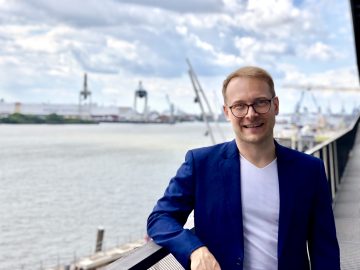The important role of stakeholder collaboration in local energy transitions

Jonas Fischer
M.A., Research Assistant
Institute of Urban Planning and Regional Development, HafenCity University Hamburg
Germany
In Europe, the energy sector is the main source of emissions with the building sector as the largest single energy consumer [1]. The sector accounts for ca. 40% of total energy consumption and 36% of the EUs GHG emissions [2]. In Europe, 75% of the building stock has been found to be energy inefficient; renovating the building stock could reduce the total EU energy consumption by 5-6%, which represents 5% of all EU CO2 emissions [3]. In addition, the European Commission estimates that energy efficiency measures could stimulate the economy, generating around 9% of Europe`s GDP, and creating 18 million jobs. Especially SMEs could highly benefit from such measures as their contribution is more than 70% of added value in the building sector [3]. But the renovation numbers show an average of only 1% of existing building renovated in EU countries instead of the needed 3% [3]. This progress is inadequate to reach the GHG emission reduction targets and to reduce dependency on fossil fuels for electricity and heating.
Approach and background
Stakeholder collaboration plays an essential role for local energy transitions and could trigger the needed energy efficiency activities and unlock unused potential. Results and good practices from almost four years of stakeholder collaboration practice in local energy transitions from the Interreg Baltic Sea Region project AREA 21 and its successor AREA 21 + action demonstrate this. AREA 21 developed and tested innovative forms of stakeholder collaboration between public and private actors in seven urban areas in six countries: Germany, Estonia, Finland, Poland, Russia, and Sweden (2017-2020). Key to unlocking energy efficiency potentials was the establishment of the Energy Improvement District (EID) Concept [4]. Within this EID framework, public and private key stakeholders were identified and activated, and defined the overall aims for the urban district [4]. They co-developed a strategy and an action plan defining how to reach the goals including specific measures and activities, e.g. the replacement of oil heating in private homes, awareness for energy use and savings, replacement of old heat pumps, visualisation of energy use etc. In AREA 21 + action (2020-2021), selected activities from the action plans were implemented and lessons drawn in order to institutionalise the energy efficiency work and cooperation of the stakeholders. Information on specific cases is available at the project website [5].
Stakeholder collaboration and results
Stakeholder collaboration can be understood as ‘various actors working together to the ends of a common goal’. Stakeholder collaboration is generally seen as beneficial for the included actors. In addition, it builds trust and ownership and allows for long-term cooperation of actors. On the other hand, it requires additional resources (e.g. time, organization, finances) and can lead to unexpected results [6]. Stakeholder collaboration in AREA 21 resulted in the aforementioned co-development of strategies and action plans, with a total of 134 actions. 176 homeowners, energy utilities and energy agencies, public property owners, hospital and university staff, students, academia, politicians and public authorities from six countries were involved in the co-development of local strategies and action plans. Several actions will be implemented together with the stakeholders involved in their development. As the EID concept is fully transferrable, spill-over effects or adaptations can already be observed. In Finland, the City of Tampere and local energy authorities dedicated public funding for energy counselling to homeowners and building associations. Two reports (i.e. “Oil heating report” and “Smart energy advice report”) have been published that help stakeholders, especially the City of Tampere, to roll-out counselling services to other neighbourhoods. Both reports stress the effectiveness of counselling for motivating home owners to act. In addition, it gives the city needed information to support energy transition. A national campaign is under development using the experiences of ICT tool-based assessment and counselling from the EID Tampere. In the St. Petersburg EID, findings have been directly integrated in students’ course curricula, and in a new master programme in energy management at the Polytechnic St. Petersburg. In addition, a bonus / payback system for student is under development where energy savings can be used for campus services (e.g. dorm laundry, printing etc.). Students are directly involved in the development and can actively steer their energy bill leading to more awareness. In Kohtla-Järve counselling on energy efficiency is of special importance due to several local challenges (i.e. low value of property and economic situation of home owners). The pilot built trust among local stakeholders and raised awareness, providing independent and reliable information through round tables and study tours.
References:
- European Environment Agency (2019). Greenhouse Gas Emissions by Aggregated Sector. Available online: https://www.eea.europa.eu/data-and-maps/daviz/ghg-emissions-by-aggregated-sector-5#tab-dashboard-02 (accessed on 18 November 2021).
- European Commission (2020). Energy Performance of Buildings Directive. Available online: https://ec.europa.eu/energy/topics/energy-efficiency/energy-efficient-buildings/energy-performance-buildings-directive_en (accessed on 18 November 2021).
- European Commission (2020). Renovation Wave. Available online: https://ec.europa.eu/energy/topics/energy-efficiency/energy-efficient-buildings/renovation-wave_en (accessed on 18 November 2021).
- AREA 21 (2020). Energy Improvement Districts – Conceptual and Technical Guidance for Implementing Cooperative Energy Planning at the District Level Available online: https://area21-project.eu/wp-content/uploads/AREA21-Energy-Improvement-Districts-Book.pdf (accessed on 18 November 2021).
- AREA 21 (+ action) project website library: https://area21-project.eu/downloads/
- Fischer, J. et al. (2020). Stakeholder Collaboration in Energy Transition: Experiences from Urban Testbeds in the Baltic Sea Region. Sustainability 2020,12, 9645; doi:10.3390/su12229645
E-mail: mail.jonasfischer@gmail.com
Expert article 3189
>Back to Baltic Rim Economies 1/2022
To receive the Baltic Rim Economies review free of charge, you may register to the mailing list.
The review is published 4-6 times a year.
